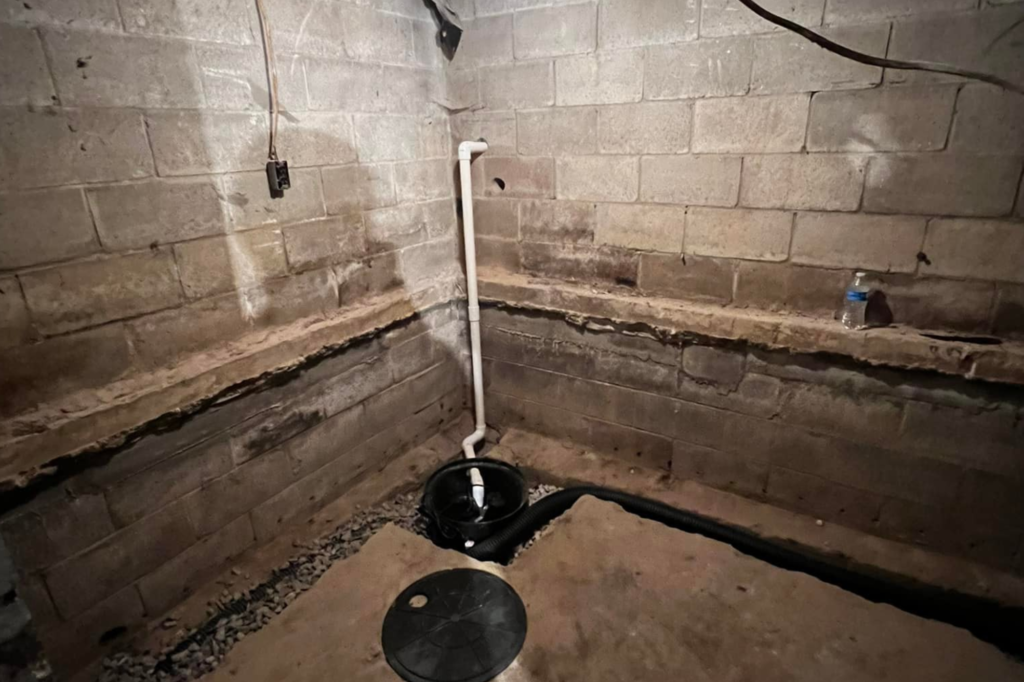As you consider the shifting climate in Pittsburgh, it’s essential to recognize how your basement could be affected by both droughts and sudden downpours. You might not realize the vulnerabilities hidden within your space, and ignoring these factors could lead to significant issues down the line. From basement waterproofing in Pittsburgh solutions to effective drainage systems, there are numerous strategies to explore. But before you make any decisions, it’s important to understand the key trends and what they mean for your home. Are you prepared to take the necessary steps to safeguard your basement?
Understanding Pittsburgh’s Climate Trends
As climate patterns shift, understanding Pittsburgh’s climate trends is vital for homeowners looking to adapt their basements effectively. The region is experiencing increasingly unpredictable weather characterized by heightened rainfall variability. This means you might find yourself facing sudden downpours after stretches of dry spells, making it essential to stay informed about these changes.
The average annual rainfall in Pittsburgh is on the rise, and the intensity of storms has increased as well. This variability can lead to unexpected flooding, putting your basement at risk. You might think that basements are just a space for storage, but they’re often the first line of defense against the elements.
If you’re part of a community that values home safety and resilience, you’ll want to guarantee your basement can handle these new challenges.
Moreover, understanding these climate trends can foster a sense of belonging within your neighborhood. By sharing knowledge about local climate conditions and solutions, you can help create a supportive environment where everyone is prepared for the changes ahead.
Whether it’s discussing drainage solutions or sharing tips about waterproofing, collective awareness can make a significant difference.
Assessing Your Basement’s Vulnerabilities
With the unpredictable weather patterns in Pittsburgh, it’s time to take a closer look at your basement’s vulnerabilities. Many homeowners don’t realize that their basements can be the weak link in their home’s defense against severe weather. To truly safeguard your space, you need to conduct thorough basement inspections, focusing on areas prone to water ingress and structural weaknesses.
Start by checking the foundation walls for cracks or gaps. These imperfections can allow moisture to seep in, especially during heavy rain. Use moisture detection tools to identify any hidden dampness that could lead to mold growth or structural damage.
Don’t forget to inspect window wells and drains, as clogs here can redirect water into your basement instead of away from it.
Assessing your basement’s vulnerabilities isn’t just about spotting issues; it’s about understanding the potential risks posed by Pittsburgh’s shifting climate. Consider how the combination of droughts and downpours can create a perfect storm for water damage. A proactive approach—like scheduling regular basement inspections—can help you stay ahead of the curve.
Finally, keep an eye on your overall drainage system. Are gutters overflowing? Is landscaping directing water toward your home? Addressing these concerns can greatly minimize the risk before the next storm hits.
Waterproofing Solutions for Heavy Rain
When heavy rain strikes, having effective basement waterproofing solutions in place can make all the difference in protecting your basement from water damage. In Pittsburgh, where intense storms seem to be the norm, you’ll want to take into account a multi-faceted approach to keep your space dry and secure.
First, installing a sump pump is vital. This device actively removes water that accumulates in your basement, preventing flooding. Make sure to choose a reliable model with a backup battery, so it works even during power outages. Regular maintenance is key; checking it monthly guarantees it’s ready when you need it most. Incorporating the best basement waterproofing practices ensures long-term protection and peace of mind.
Another effective solution is creating a rain garden. This natural approach involves planting native plants in a designated area to absorb excess rainfall. Not only does this help manage runoff, but it also adds beauty to your yard and improves local biodiversity.
Position your rain garden strategically to divert water away from your foundation.
Additionally, think about applying waterproof sealants to your basement walls and floors. These products create a barrier against moisture, further protecting your space.
Don’t forget to inspect gutters and downspouts to verify they’re clear and directing water away from your home.

Managing Humidity During Droughts
Although droughts may seem like a reprieve from the relentless rains, they can lead to a different set of challenges, particularly when it comes to managing humidity levels in your basement.
In a dry climate, you might think humidity isn’t a concern, but the reality is that fluctuating moisture levels can create an environment ripe for problems like mold and mildew. So, it’s vital to focus on effective humidity control to maintain a healthy space.
To start, consider using a dehumidifier. This handy device can help regulate moisture levels by drawing excess humidity from the air, particularly during those hot, stagnant summer months.
Make certain to choose a model that suits your basement’s size; you want it to work efficiently without breaking the bank.
Additionally, sealing any cracks or gaps in your basement walls is important. Not only does this prevent unwanted moisture from entering during heavy rains, but it also helps maintain a stable humidity level during dry spells.
Insulating pipes and walls can further contribute to drought resilience, keeping your basement cool and dry.
Lastly, remember to monitor humidity levels regularly. A hygrometer can be a valuable investment, allowing you to keep track of moisture fluctuations and take action when necessary.
Essential Drainage Systems
As climate patterns shift, the importance of effective drainage systems in your basement can’t be overstated. With the increasing frequency of heavy rainfall in Pittsburgh, having a reliable drainage system is vital for protecting your home from water damage. You want your basement to be a safe, usable space, and that starts with understanding the key components of a solid drainage plan.
First and foremost, consider installing a sump pump. This device acts as your basement’s first line of defense against flooding. When water levels rise, the sump pump kicks in, directing excess water away from your home. Regular drainage maintenance is essential to guarantee your sump pump functions correctly; check it periodically and clean any debris that might hinder its performance.
Additionally, explore interior and exterior drainage solutions. French drains can be incredibly effective at channeling water away from your foundation, while downspouts should direct rainwater at least five feet away from your home.
You might also want to evaluate your yard’s grading—making sure it slopes away from your foundation can make a significant difference.
Insulation Techniques for Temperature Control
While many homeowners focus on waterproofing their basements, effective insulation techniques are equally essential for maintaining a comfortable and energy-efficient space. A well-insulated basement not only keeps your home warm during Pittsburgh’s cold winters but also helps regulate temperatures during the humid summer months.
One of the best solutions is spray foam insulation. It expands to fill gaps, creating a tight seal that minimizes air leaks, which can lead to considerable energy savings. Plus, its moisture-resistant properties protect against mold growth, making it a practical choice for basements prone to humidity.
Another effective method is installing radiant barriers. These barriers reflect heat away from living spaces, keeping your basement cooler in the summer. By placing radiant barriers in the ceilings or walls, you can greatly reduce cooling costs and enhance overall comfort. This technique is particularly beneficial if you plan to use your basement as a living area, as it helps create a more pleasant environment year-round.
Combining spray foam with radiant barriers can create a robust insulation strategy for your basement. This dual approach not only enhances temperature control but also contributes to a healthier indoor atmosphere.
As you adapt your basement to cope with changing climate conditions, prioritizing insulation techniques will guarantee you’re not just responding to immediate concerns, but also creating a welcoming, energy-efficient sanctuary for you and your family. Embracing these methods means investing in your home and your comfort, fostering a sense of belonging in your space.
Landscaping Strategies for Water Management
To effectively manage water runoff and protect your basement from flooding, implementing strategic landscaping is essential. You mightn’t realize how much your yard can influence water flow, but thoughtful design can greatly reduce the risk of basement water issues.
One effective approach is the installation of rain gardens. These specially designed areas collect and absorb rainwater, allowing it to infiltrate the ground rather than run off into storm drains. By strategically placing plants that thrive in wet conditions, you can create a beautiful focal point while enhancing drainage.
Another key strategy is using permeable pavements for your driveways and walkways. Unlike traditional concrete, permeable pavements allow water to seep through, reducing surface runoff and promoting groundwater recharge. This not only helps manage water but also minimizes erosion and flooding risks in your yard and basement.
Consider combining these elements for a thorough water management solution. Positioning rain gardens near downspouts can capture runoff directly, while permeable pavements can direct water away from your foundation.
These landscaping strategies not only protect your home but also contribute to a more sustainable environment. As you think through your landscaping choices, remember that you’re part of a community working to adapt to Pittsburgh’s changing climate.
Preparing for Extreme Weather Events
Given the increasing frequency of extreme weather events, preparing your basement should be a top priority. You want to guarantee your home remains a safe haven, especially when storms strike or heavy rains flood the streets.
Start by investing in weather-resistant materials for your basement. These materials can withstand moisture and protect against mold, which can be a significant concern in Pittsburgh’s unpredictable climate.
Next, evaluate your basement’s drainage system. Confirm it’s functioning correctly; consider installing a sump pump if you haven’t already. This can provide peace of mind during heavy downpours, keeping your space dry and usable.
Emergency preparedness is also essential. Create a plan for what to do in case of severe weather. This includes having an emergency kit stocked with essentials like food, water, and first-aid supplies. Make sure you know how to quickly access your basement’s supplies and that your family is aware of the plan.
Don’t forget to communicate with your neighbors. Sharing tips and strategies can foster a sense of community, making everyone feel more secure.
Finally, regularly check your basement for vulnerabilities, such as cracks in the walls or issues with insulation. Staying proactive not only protects your home but also gives you a sense of belonging in a community that values safety and preparedness.
Embrace these measures to guarantee your basement remains resilient against whatever nature throws your way.
Review
In a city like Pittsburgh, where climate extremes can surprise you, it’s essential to rethink your basement’s defenses. Did you know that homes without proper drainage systems are 50% more likely to suffer water damage? By proactively implementing basement waterproofing service and effective drainage, TC Foundation Pros LLC can help you safeguard your space against both droughts and downpours. Don’t wait for the next storm—take action now to guarantee your basement remains a safe haven, no matter what the weather throws your way.
